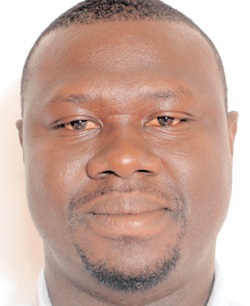
By Wisdom JONNY-NUEKPE
The Centre for Affordable Housing Finance in Africa (CAHF) has identified land tenure insecurity, high transaction costs, complex property rights and weak regulatory oversight stemming from institutional neglect as major challenges hindering the development of affordable housing solutions in the country.
CAHF, which promotes investment in affordable housing and housing finance across the continent, in its Housing Finance in Africa Yearbook 2023 indicated that housing finance solutions – particularly for urban dwellers in Ghana – will remain a challenge if government remains inflexible in its approach.
Ghana’s housing deficit witnessed a 33 percent reduction from 2.8 million in 2010 to 1.8 million in 2022, partly attributable to the real estate boom and a 72 percent increase in residential structures within the period.
With an existing national bond market – the Fixed Income Market (GFIM), where government and other quasi-public and corporate money market instruments are listed and traded – various other organisations have also made concerted efforts to increase the national housing stock and contribute to the affordable housing agenda.
However, CAHF asserts that the unaffordability of housing finance is further exacerbated by weakened consumer sentiment, driven by persistent increases in fuel prices, rising transportation fares and escalating inflation – factors which have all contributed to a surge in housing prices across the country.
For instance, government launched the National Homeownership Fund (NHF) under the Decent Homes, Better Life initiative in 2018 to provide mortgages at low interest rates for eligible public workers and civil servants with at least five years of experience, in partnership with three banks: GCB Bank Limited, Stanbic Bank and Republic Bank.
The NHF provided 296 mortgages to Ghanaians but the scheme remains in its pilot phase. Initially, these cedi-denominated mortgages were offered at competitive market rates (12 percent at Stanbic Bank and 11.9 percent at Republic Bank), but by 2023 they had steadily increased to 18 percent due to rising interest rates on Treasury bills.
This, according to the CAHF, erodes government’s will to provide the right environment and opportunities to make housing affordable for ordinary Ghanaians.
However, the Ministry of Works and Housing has recently announced, yet again, another comprehensive plan to tackle the country’s housing deficit.
With a housing shortage of 1.8 million units affecting approximately 5.4 million Ghanaians, government said it has identified seven key priorities to increase housing supply and improve access to affordable housing.
These priorities include completing stalled projects – including the Saglemi, Koforidua and Adenta State Housing schemes.
For instance, the Adenta project, which began in 2011, was suspended in 2013 due to a court injunction. Recent court rulings have allowed work to resume and efforts are now underway to secure private developers who will fund and complete these projects, among others.
The post Institutional neglect negating affordable housing blueprint appeared first on The Business & Financial Times.
Read Full Story










Facebook
Twitter
Pinterest
Instagram
Google+
YouTube
LinkedIn
RSS